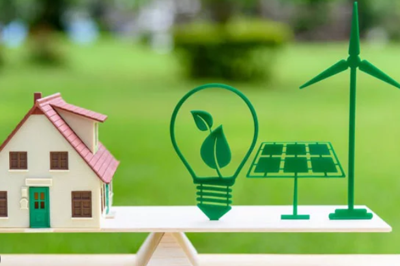
Saving energy at home not only reduces your electricity bills but also benefits the environment. By implementing simple strategies, you can lower your energy consumption without sacrificing comfort. This article shares effective Energy-Saving Tips for Your Home that are easy to apply and can make a real difference in both cost and sustainability. Whether it’s upgrading appliances, adjusting daily habits, or improving insulation, these tips are designed to help homeowners optimize energy use efficiently.
1. Upgrade to Energy-Efficient Appliances
Replacing old appliances with energy-efficient models is a critical Energy-Saving Tip for Your Home. Look for the ENERGY STAR label when purchasing refrigerators, washing machines, or air conditioners. These appliances use advanced technology to consume less electricity, reduce carbon footprint, and save you money in the long run. Over time, small adjustments in appliance efficiency can add up to significant savings on your energy bills.
2. Use LED Lighting
Switching to LED bulbs is one of the easiest Energy-Saving Tips for Your Home. LEDs use up to 80% less energy than traditional incandescent bulbs and last much longer. By installing LED lights in every room, you can lower your energy consumption dramatically. Consider using dimmers and motion sensors in high-traffic areas to optimize lighting usage further.
3. Install Smart Thermostats
Smart thermostats allow you to control heating and cooling efficiently, making them a top Energy-Saving Tip for Your Home. These devices adjust temperature based on occupancy, weather, and your schedule. You can save up to 15% on heating and cooling costs annually. Some models even provide energy reports to help you track and reduce consumption over time.
4. Seal Windows and Doors
Preventing air leaks is an important Energy-Saving Tip for Your Home. Gaps around windows and doors can allow warm or cool air to escape, increasing energy bills. Use weatherstripping, caulk, or sealant to close leaks and maintain a consistent indoor temperature. Proper insulation keeps your home comfortable and reduces the workload on your HVAC system.
5. Optimize Water Heating
Water heating accounts for a significant portion of home energy usage. A valuable Energy-Saving Tip for Your Home is to lower your water heater temperature to 120°F (49°C). Additionally, insulate your water heater and pipes to reduce heat loss. Installing low-flow fixtures can also decrease hot water consumption without compromising performance.
6. Use Power Strips for Electronics
Many devices consume power even when turned off, known as “phantom load.” Using power strips and turning them off when devices are not in use is a simple Energy-Saving Tip for Your Home. This approach can save both energy and money while extending the lifespan of your electronics. Consider smart power strips that automatically cut power to idle devices.
7. Insulate Your Home Properly
Proper insulation is one of the most effective Energy-Saving Tips for Your Home. Insulating walls, attics, and basements keeps your home warmer in winter and cooler in summer. High-quality insulation reduces the need for heating and cooling, cutting energy consumption and lowering your bills.
8. Reduce Water Usage
Conserving water is directly linked to energy savings, making it a practical Energy-Saving Tip for Your Home. Fix leaks promptly, use water-efficient appliances, and collect rainwater for irrigation. Heating water requires energy, so reducing water usage also helps decrease your energy costs and environmental impact.
9. Harness Natural Light and Ventilation
Maximize daylight and natural ventilation to reduce reliance on artificial lighting and air conditioning. This is a smart Energy-Saving Tip for Your Home. Open windows during cooler hours and use reflective surfaces to spread natural light. This strategy not only saves energy but also improves indoor air quality and overall comfort.
10. Regular Maintenance of HVAC Systems
Maintaining heating, ventilation, and air conditioning systems is an essential Energy-Saving Tip for Your Home. Clean or replace filters regularly, schedule professional inspections, and check ductwork for leaks. Properly maintained systems run more efficiently, consume less energy, and extend the lifespan of your HVAC units.
Implementing these Energy-Saving Tips for Your Home can significantly reduce energy bills, improve comfort, and contribute to a greener environment. From upgrading appliances to optimizing insulation, every small change counts. Start with a few strategies today and gradually incorporate more practices. By making energy efficiency a habit, you save money, reduce carbon footprint, and create a sustainable living space for the future.
For more tips, visit Energy Savers for additional insights and guidance.



(0) comments
We welcome your comments
Log In
Post a comment as Guest
Keep it Clean. Please avoid obscene, vulgar, lewd, racist or sexually-oriented language.
PLEASE TURN OFF YOUR CAPS LOCK.
Don't Threaten. Threats of harming another person will not be tolerated.
Be Truthful. Don't knowingly lie about anyone or anything.
Be Nice. No racism, sexism or any sort of -ism that is degrading to another person.
Be Proactive. Use the 'Report' link on each comment to let us know of abusive posts.
Share with Us. We'd love to hear eyewitness accounts, the history behind an article.